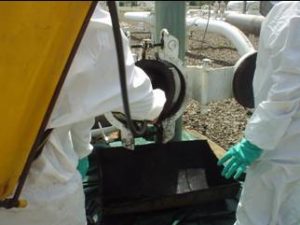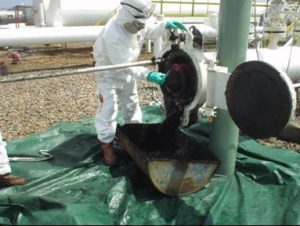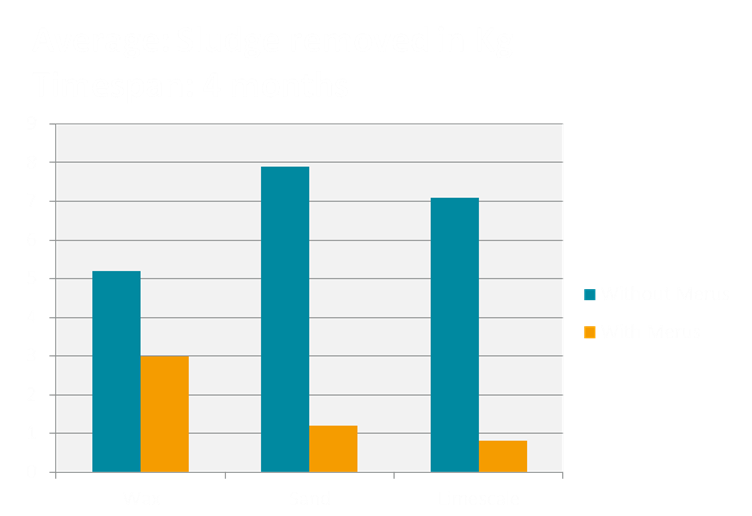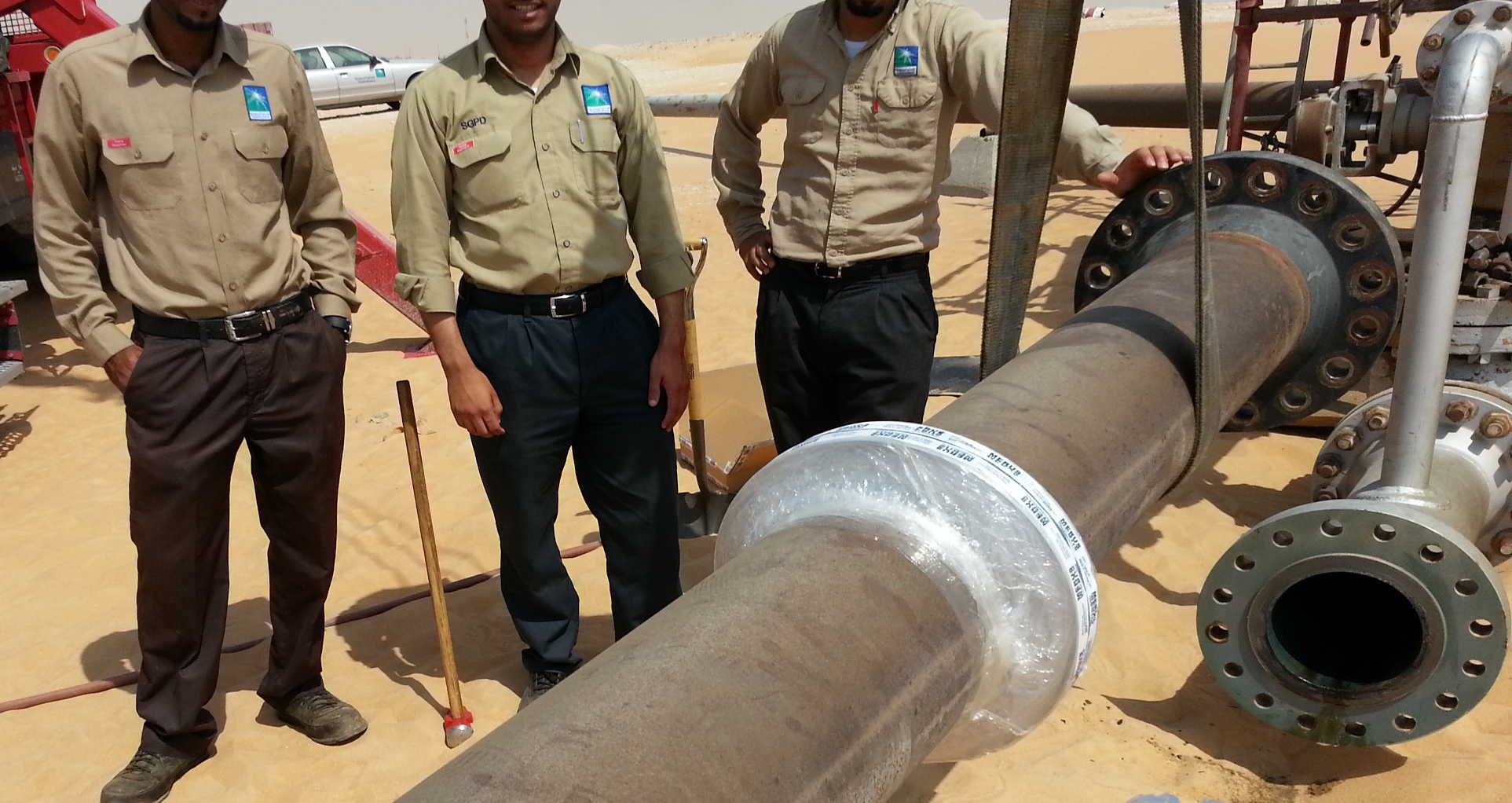
„Sludge“ is the generic term for all types of sediments that can be found in a pipeline. In an oil or gas pipeline this can be lime, corrosion, wax, tar, asphaltene, sand or bacteria. Usually this sludge can be removed by pigging. The pig is placed in the pipeline at the beginning of the line. The pig is pushed all the way through the pipe by the oil or gas. The pig is designed to clean the pipe walls as it travels through the pipe and remove all the dirt or sediment at the end of the line.
The amount of sludge being pushed out of the pipe can on long and big pipelines easy accumulate to several 100 kgs. This is, of course, dependant on the frequency of pigging and the size of the pipe.
Depend ing on the composition of the hydro carbon, the sludge can also contain toxic parts, such as H2S, Mercury. In this case, human contact with the deposits must be avoided. Therefore special equipment and safety clothing is needed. The pictures show safety precautions being taken, when the sludge is manually removed from the receiver after the pigging. The toxic sludge has to be taken special care of. The sludge has to be burned in special locations, to ensure nobody is harmed. To do the final deposition is also very costly.
ing on the composition of the hydro carbon, the sludge can also contain toxic parts, such as H2S, Mercury. In this case, human contact with the deposits must be avoided. Therefore special equipment and safety clothing is needed. The pictures show safety precautions being taken, when the sludge is manually removed from the receiver after the pigging. The toxic sludge has to be taken special care of. The sludge has to be burned in special locations, to ensure nobody is harmed. To do the final deposition is also very costly.
Reduce sludge with the Merus Technology

One of the fundamental effects of the Merus Technology is, the solubility of all soluble parts in a liquid is increased. In the graph is shown a case where the benefits can be seen easily.
Some major ingredients in the crude oil such as paraffin wax or the limescale keep solved. And they keep flowing with the crude and will not settle in the pipe. If the inner surface of the pipe is smooth, no other material can stick to it and form deposits.
In the graph, can be seen, Merus reduce scale, paraffin wax and sand.
Sand of course is not soluble in a liquid. But if there is no wax, the sand has no hold on the pipe wall and go with the liquid down stream.
In some projects we were able to reduce the amount of sludge by almost 90%.
Saving operating costs
Reducing the amount of sludge means reducing the necessity for pigging. The remaining sludge doesn’t stick to the pipe walls, which facilitates the procedure of cleaning.
Less sludge means also less backpressure from pipe lines. So the electricity needed to pump the oil is less. We have cases where we were able to save more the u70% of the energy needed in the pumps.
These both factors save costs for maintenance of the piping system.

